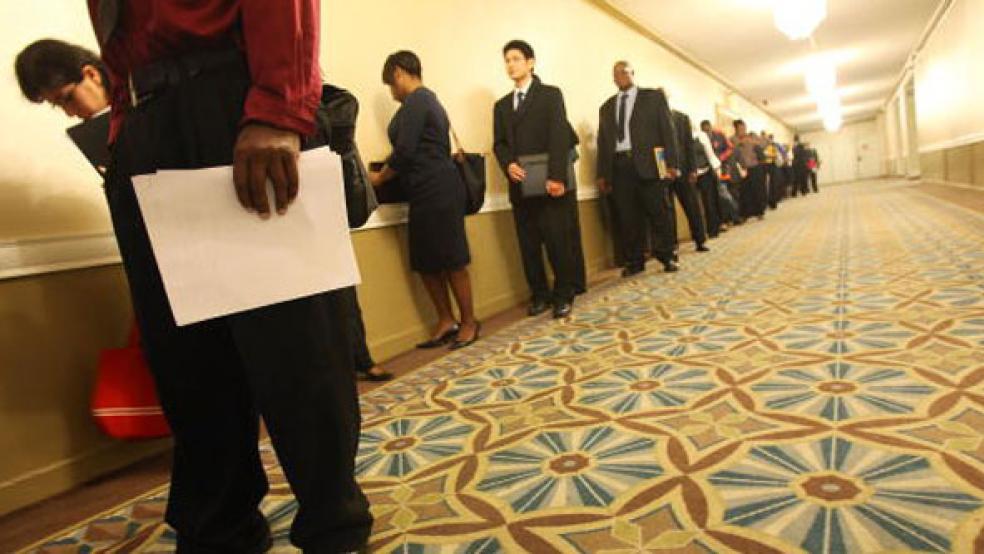Shortly after Jodi Rubin, 55, was laid off from a job selling Marriott timeshares in June of 2009, she faced a new challenge: Housebound and unemployed, how would she stay cool during a scorching southern California summer? Soon after a chat with a neighbor, she came up with an idea to create custom-cut foam inserts for her windows and found they cut the temperature inside her house by 20 degrees.
That was the start of Rubin’s new business venture selling custom-made polystyrene panels for houses, cars, and recreational vehicles — “window underwear,” as she calls it. While polystyrene has long been used as an insulator in walls, Rubin’s fitted window inserts with borders were unique enough for her to patent her idea and put together a team to license it to other companies. Today she owns a van and trailer emblazoned with her Window Wonders company logo and a 1500-square-foot warehouse. She employs two people part time and is hiring sales staff, expecting demand to surge when the hot weather hits in March. “I feel like I’m in love every day of the week,” she says of her work.
During economic downturns, it’s not unusual for laid-off employees like Rubin to remake themselves as entrepreneurs. Right now more than 9.8 percent of all workers are self-employed, and more than a quarter of people laid off in the first six months of 2010 who hadn’t found jobs considered starting their own businesses, according to a CareerBuilder survey. But at a time when President Obama is promoting entrepreneurship and innovation, some unemployed workers are finding that state governments are hindering their start-up efforts. They say that the unemployment system forces them to make a difficult choice: Pursue their business plans by giving up the critical financial support they need—unemployment checks. The unemployment program prohibits people from starting businesses in lieu of looking for paying jobs—and that’s true in all states.
Rules of the Game
San Francisco resident Maura Lafferty, 24, was one of the estimated 22.5 million dismissed or laid-off workers in 2010 — she lost her job as a business manager at a music nonprofit in December. She wants to start her own publicity consulting firm, so between writing resumes and interviewing for full-time jobs, she’s been marketing to potential clients. She landed her first client in January.
But when she applied for unemployment, she wrote that she’d netted $300 in income from the client. That created problems. She had to undergo a detailed interview to establish that her freelance work was a stopgap, which delayed her first check by two weeks. When it finally arrived, the $300 she’d earned had been deducted.
“If someone wants to start a new business, state unemployment systems discriminate against those people. It’s anti-American in some ways.”
The unemployment program requires recipients to be actively looking for a wage or salaried job and available to take it—spending time starting a business instead of pursuing a paying job disqualifies a person from benefits.
The result is that some out-of-work entrepreneurs shelve their startup ideas. Though there are no figures for how many people are affected nationally, unemployment can be a surprising impetus for potential business owners: A 2003 study of young men by the Federal Reserve Bank of Chicago showed that more of them sought self-employment when jobs were scarce. “There are five people searching for every one opening available, so the odds are bad you’re going to find a job,” says Heather Boushey, a senior economist at the Center for American Progress. “If someone wants to ramp up a business or start a new business, it doesn’t make sense that state unemployment systems would discriminate against those people. It’s kind of anti-American in some ways.”
What if you want to start your own business? According to New York’s unemployment insurance website, you must “notify the Telephone Claims Center before you take steps to start a business. Unless you are enrolled [in the Self Employment Assistance program], these activities may result in the loss of unemployment insurance benefits.” The program adds this explanation: “You are considered to be employed if you are engaged in operating or starting a business either by yourself, with a partner or in a corporate arrangement. Time spent during the day or evening or on weekends preparing to start or actually operating a business may be considered employment even though no sales are made nor any compensation received.”
Knowing Where to Look—and How States Vary
The Self-Employment Assistance program (SEA) accommodates the business aspirations of the unemployed. Administered by the Department of Labor (DOL), it allows laid-off workers to get “self-employed allowance” checks while they participate in entrepreneurial training, write business plans and launch their ventures. Check amounts and the number of benefit weeks match what would-be entrepreneurs would have received through regular unemployment.
But here’s the rub: The program is voluntary for states, so only, a handful offer the program thus far. According to the DOL, as of 2011, Delaware, Maine, Maryland, New Jersey, New York, Oregon and Pennsylvania participate in SEA. Workers apply at their local workforce commission office and they must show they’re working toward opening their own businesses.
But even residents of those states have no guarantee of getting in. Only people likely to exhaust their unemployment benefits without finding a job (because they were employed in a declining industry, for example) can participate. This provision ensures that states don’t admit normally employable people who instead start businesses that go nowhere, costing the state more money — a key point, since by law a state can’t spend more on the program than what it would spend if program recipients were on regular unemployment. In Maine, one of the states offering the program, over the last five years, of about 425 applicants per year, the program has accepted 220.
Urban Institute economist Wayne Vroman labels the program “boutique” and says it will stay that way as long as participants receive only an amount equal to an unemployment check. He notes that the average benefit is $300 a week with an average duration of 20 weeks — $6000 total. “If you thought about it as a loan for starting a business, that’s very small,” he says.
Despite that limited investment, the DOL has commissioned only one study of the program so far, which found that even when program participants don’t succeed with their planned businesses, they may be more likely to end up employed. Participants were four times more likely than non-participants to get a salaried job or become self-employed. Still, the researchers said more data is necessary to draw broad conclusions about the program’s cost effectiveness.
Data or not, Moe Moore from the small Maine town of Lisbon counts himself among the program’s fans. In January of 2004, he lost his job of 26 years making shoe models for a manufacturer. But that month, he got into Maine’s SEA program after describing on an application his plans for a company that would make kettle corn.
While the program’s checks kept him going, he developed a business plan, ordered equipment, and started popping corn. Moore’s wife, Janis, says that the first batch caught fire. And five months after launching MAC’s Gourmet Popcorn Company Moe was earning enough to replace his self-employment checks, which were getting smaller as he took in more money. Maine permits recipients to make up to the equivalent of their check amount plus $5 before cutting them off completely. Today, the company has grossed more than $100,000 for three years running, has four distributors, and employs the couple’s daughter-in-law part-time.
San Francisco resident Lafferty wishes she had support like that: California has a SEA program, but it’s not currently active due to low enrollment in the late 90s. “I’d totally do it,” she says. “This is Silicon Valley. Anything is possible, right?”
Related Links
The Hidden Cost of Unemployment Benefits (The Fiscal Times)
Side business can hurt unemployment benefits (Bankrate.com)
Failure to Reauthorize Unemployment Benefits Will Hurt Economy, Say Economists (The Huffington Post)





